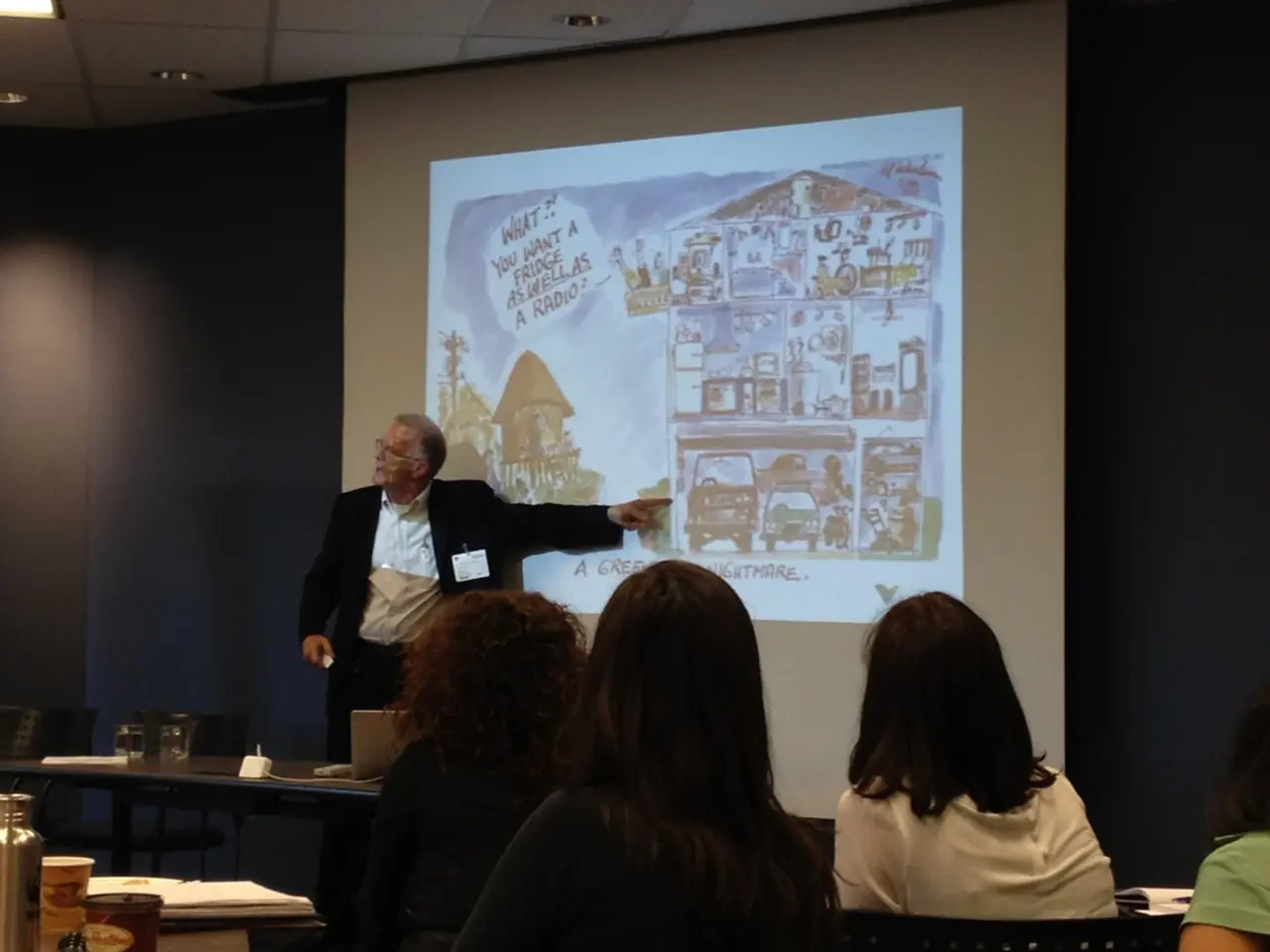AI Set to Reshape the Core of Medical Practices
In a significant stride towards transforming the healthcare landscape, the Arc Institute has unveiled its latest AI model, Evo 2, designed to comprehend and generate genetic code. This development comes at a time when AI is already making waves in the healthcare sector, enhancing personalized, efficient, and proactive care.
AI is reshaping healthcare by integrating advanced data, providing AI-driven decision support, and automating routine tasks. This transformation is leading to precision diagnostics and treatment tailored to individuals' genetics and lifestyles, continuous monitoring via wearables, and improved administrative efficiency. Moreover, AI is accelerating drug discovery, supporting regenerative medicine through simulation and predictive analytics, and driving digital diagnostics with improved accuracy and speed.
One area where AI-guided personalized medicine is making a significant impact is cancer treatment. AI is being used to personalize cancer treatment and reduce travel barriers via distributed platforms. For instance, the Avitia healthtech company has developed an AI-powered molecular diagnostics platform for distributed cancer testing through simple blood draws. This platform, validated in several countries, aims to make cancer a manageable chronic condition by advocating for better access to precision care and advanced diagnostics at or near the patient's point of care.
The future potential of AI in healthcare lies in fully realizing predictive, proactive healthcare with AI-powered digital twins and multi-omics integration. This could enable early intervention and personalized regenerative therapies, thereby shifting healthcare from a reactive to a preventive model.
AI-driven decision support systems are providing clinicians with real-time evidence-based insights, reducing diagnostic errors and enabling faster, more accurate diagnoses. AI also alleviates workforce shortages by automating routine tasks, allowing healthcare workers to focus on direct patient care.
In regenerative medicine, AI combined with multi-omics data and digital twins are enabling prediction of disease progression and treatment response, supporting personalized interventions that could restore damaged tissues or organs. Focused ultrasound technology, often enhanced by AI, is a burgeoning field for non-invasive cancer surgery.
However, realizing these advances fully depends on continued improvements in data quality, regulatory frameworks, ethical standards, and integration infrastructure to ensure safe, equitable, and effective AI application in clinical practice. Challenges remain in navigating the regulatory landscape and addressing data isolation issues within healthcare.
As we stand on the brink of a new era in healthcare, it's clear that AI is poised to deliver real-world productivity gains, particularly in the life science space. Investors like Wesley Chan of FPV Ventures and Bison Ventures are backing early-stage AI-enhanced drug discovery and advanced life science tools for pre-clinical testing.
Gary Marcus, an AI researcher and author, believes biology is a natural fit for AI, especially in protein interaction modeling and drug development. Tom Beigala of Bison Ventures echoes this sentiment, stating that AI and next-generation computational technologies are driving innovation across the entire healthcare system.
Healthcare is now entering its "prime time for innovation." As we move away from outdated practices, we can look forward to a future where less than 5% of the massive amount of healthcare data is currently being used, primarily due to privacy compliance concerns. The moment of physician-to-patient interaction has remained largely unchanged for over 200 years, but with AI, we are on the cusp of a revolution.
Strides in AI-powered healthcare are not limited to diagnostics and treatment. Arc researchers have published a preprint showing that their gene-editing technology can make broad alterations to the human genome. This breakthrough, coupled with advancements in regenerative medicine, promises a future where healthcare is more proactive, personalized, and focused on prevention, personalization, and long-term wellbeing.
In conclusion, AI is poised to reshape healthcare delivery towards more personalized, efficient, and proactive care models. The transformative potential in regenerative medicine and digital diagnostics is poised to expand further in coming years, making healthcare more accessible, efficient, and effective for all.
- The Arc Institute's new AI model, Evo 2, is designed to understand and generate genetic code, adding to the growing impact of AI in the life science sector.
- Investors like Wesley Chan of FPV Ventures and Bison Ventures are backing AI-enhanced drug discovery and advanced life science tools, showing the potential of blockchain investing in this area.
- AI is driving innovation across health-and-wellness, transforming the healthcare system by providing precision diagnostics and treatment for medical-conditions like cancer, and accelerating drug discovery.
- Advancements in artificial-intelligence, technology, and life science are leading to a future where healthcare is more focused on prevention, personalization, and long-term wellbeing, thanks to breakthroughs in gene-editing and regenerative medicine.




